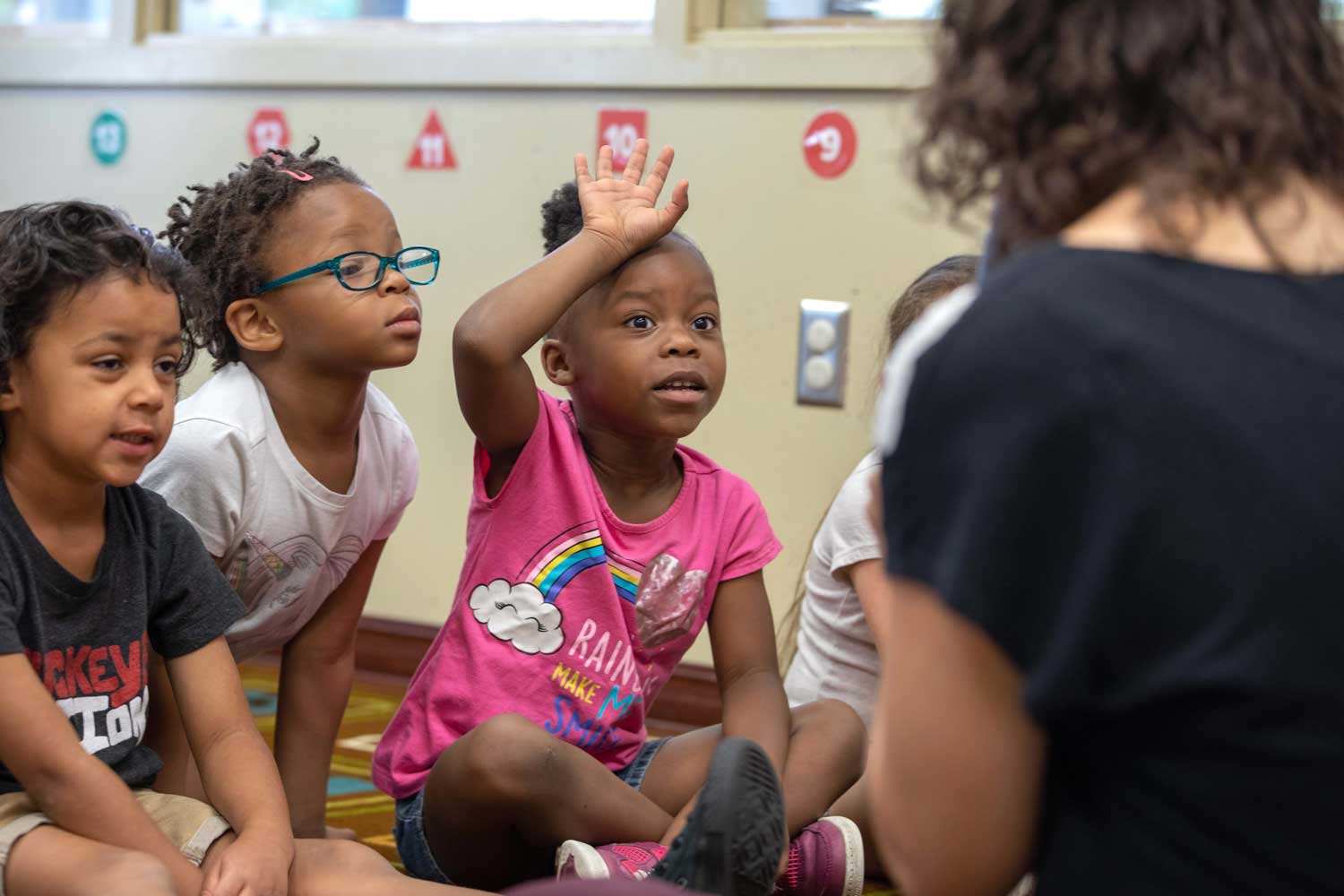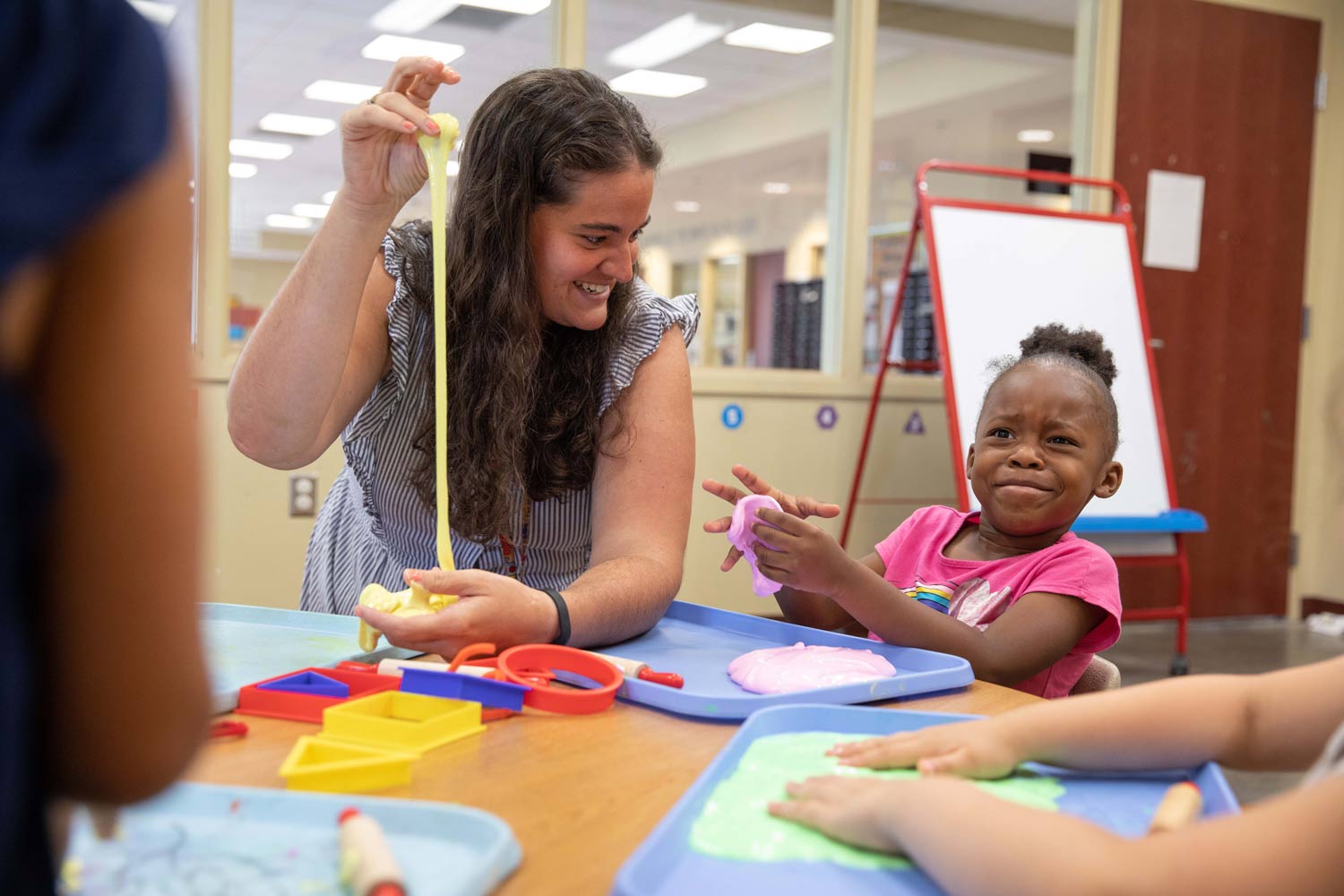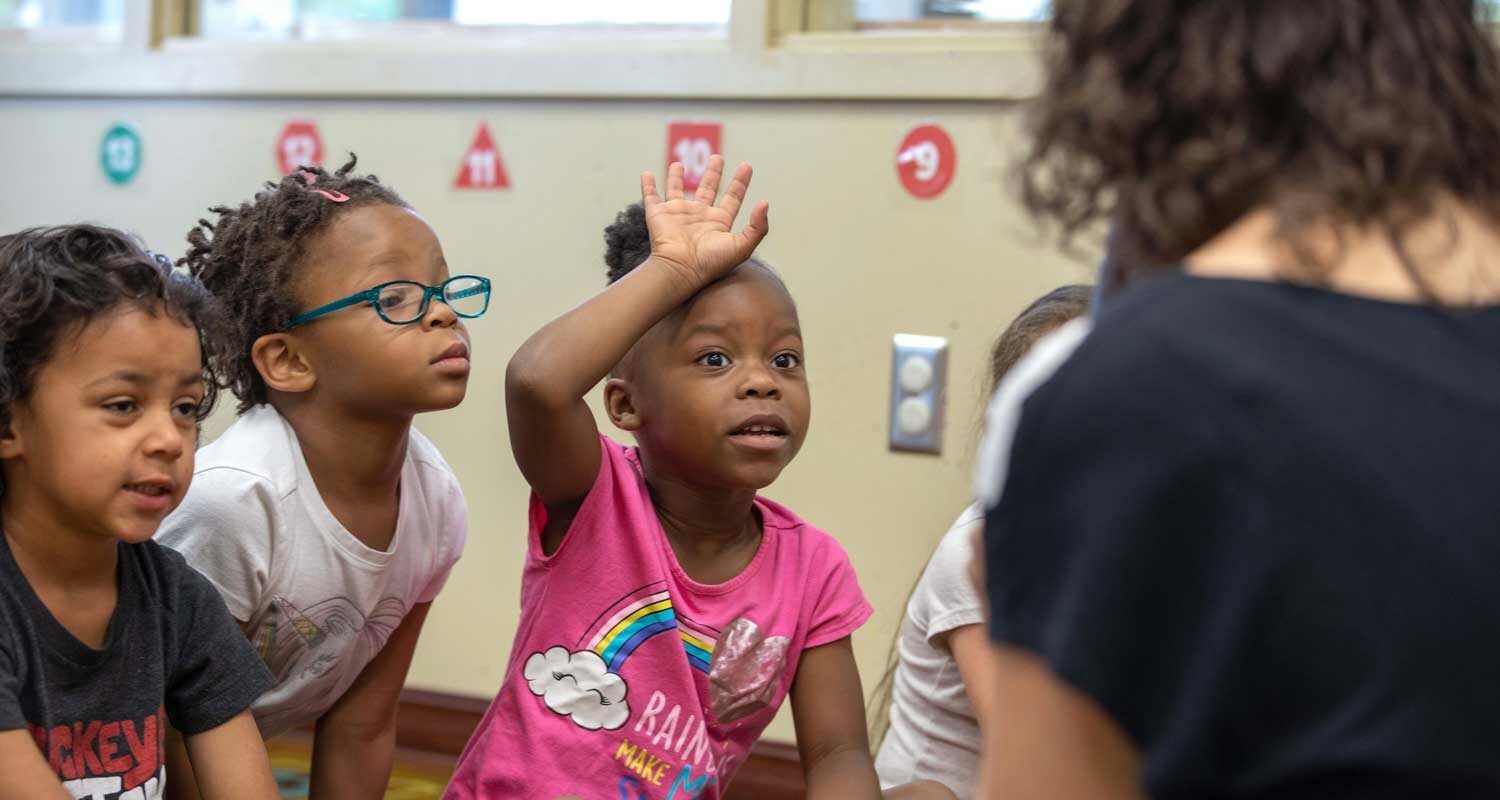Getting all kids ready for kindergarten
by Janet Ciccone

Eager to hear a story, six children settled on the classroom carpet at the college’s Schoenbaum Family Center with preschool teacher Julia Sakowski.
The kids wiggled and moved around during the reading, but all listened and took part in the discussion. The story of the day, called Chalk, had illustrations but no words.
“How does this boy feel?” Sakowski asked, pointing to a picture.
Kanasia Brown’s hand shot up, as it often did during the story. “Excited,” she said confidently, nailing the answer. Her response shows she is ready for kindergarten.
“We focus on the skills that are key predictors of success,” said Kari Welch, project manager for the four-week camp and a literacy technician. “The soft skills, like understanding the feelings of others, reading social cues and resolving conflict, are high on our priority list, because without those, nothing else can happen.”
A serious five-year-old, Kanasia was reserved when she first joined the camp. She didn’t interact with her peers or teachers much, Welch said. “Which made it difficult for us to assess what she knew, for her to grow in social skills with her peers.”
But with each passing week, Kanasia blossomed. “She amazed us,” Welch said. As the child became more outgoing, teachers learned she knew far more than they had realized.
“By the end of the camp, she was excited to answer questions. She wanted to be heard,” Welch said. “She was happy to come to camp, to play with her peers and we were able to see her growth.”
Why these skills matter
EHE Distinguished Professor Laura Justice, executive director of the Schoenbaum Center, said kindergarten often is considered the most important time in children’s education.
“In one of our studies, we found that nearly 90% of kindergarteners in Columbus City Schools with well-developed language and literacy skills later passed the state’s third-grade reading assessment,” said Justice, also executive director of the college’s Crane Center for Early Childhood Research and Policy.
“In comparison, only one in three children in the same schools with underdeveloped language and literacy skills and no special supports passed the same assessment.”

Crane Center researchers also evaluated the camp’s first three years. They found the enrolled children all made significant progress in each of the targeted skill areas. Most of the children attending the camp live in Columbus’ Weinland Park community, where families often lack resources. Generous donors paid for 15 children at both camp sessions this year.
The City of Columbus has offered some funding for three of the camp’s four years, thanks to its emphasis on ensuring all children start kindergarten ready to succeed.
PNC Bank also has been a loyal supporter for two years. This year, it ensured that the children went on field trips to the Franklin Park Conservatory, the Columbus Art Museum and more.
Donor funds Kindergarten Corps
Most recently, longtime college donor Dick Foster made a gift to create Kindergarten Corps to help those who struggle with reading.
Justice and colleagues are designing the program to tutor 50 children, starting in 2020. They will target two Columbus City elementary schools, with the goal of scaling up to more schools over time.
Foster’s mother, Gladys Foster Anderson, ’25 BA, devoted 30 years to the field, including working for a major educational publisher and supervising student teachers in the college.
“Early childhood literacy was my mother’s passion during her entire career,” Foster said. “She actually left Ohio State to start Columbus’ Head Start program. I wanted to support my mother’s interest.”
Help Columbus kindergartners get reading support
Support Kindergarten Corps today

